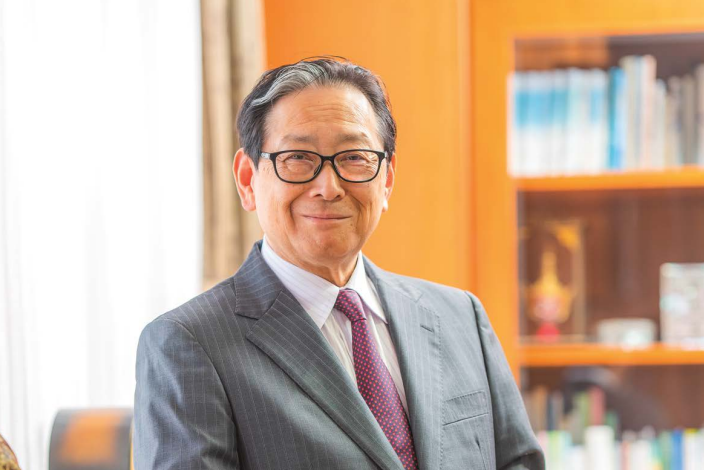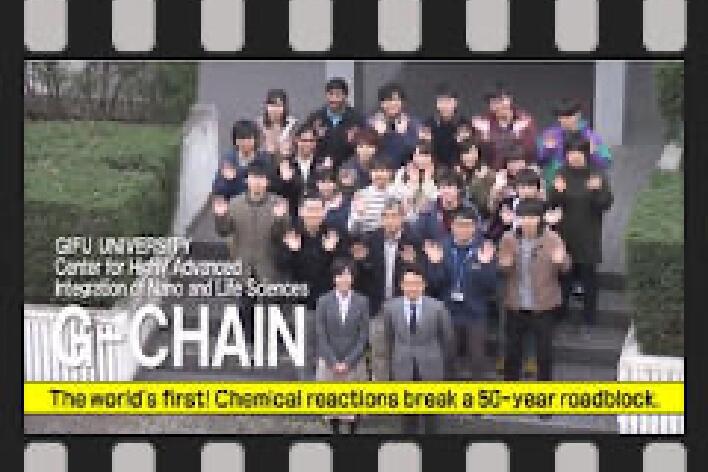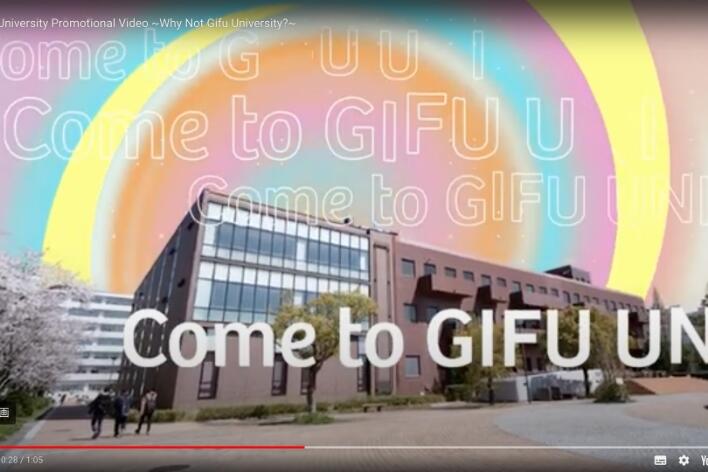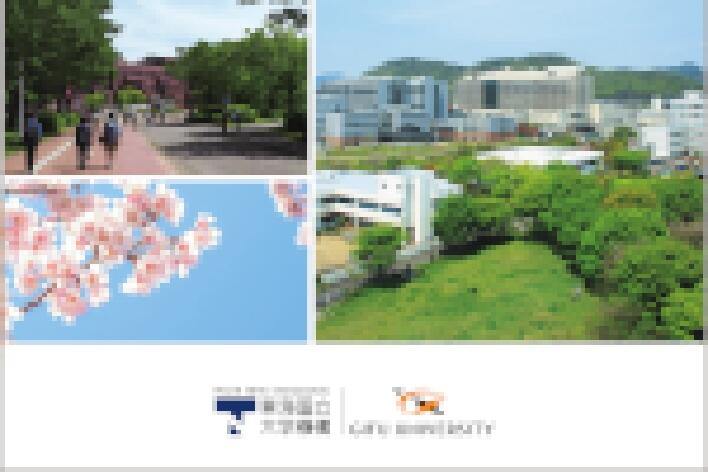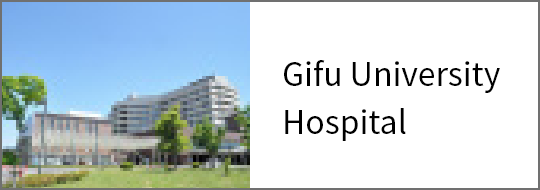President's Address at the 68th Commencement Ceremony and Graduate School Commencement Ceremony for AY 2019
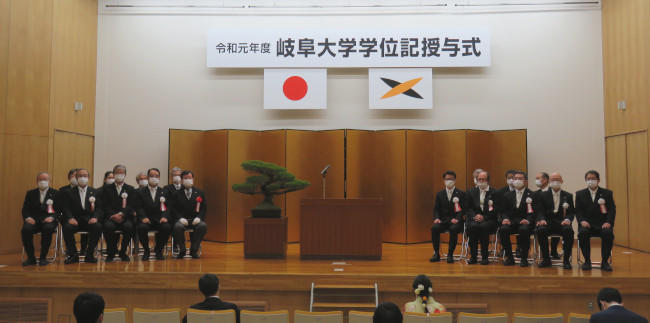
At this 68th Commencement Ceremony and Graduate School Commencement Ceremony for AY 2019, let me start my address by offering my sincere congratulations to the students who are graduating from Gifu University today.
It is very unfortunate that the current coronavirus crisis has brought about this unorthodox, scaled-down commencement ceremony for the academic year 2019. Changes are made for the venue of celebration to this university auditorium. Only a select few students who represent their respective faculties and graduate schools will receive diplomas on behalf of all graduating students. The board members, including myself, the vice presidents, and the faculty deans are fortunate to witness this auspicious moment. To convey my congratulations to the graduating students, and extend my heartfelt appreciation to the faculty members and guardians who have guided and instructed them, the video of this ceremony is being live-streamed in real time on YouTube.
Let me also add that this ceremony will be followed by a number of celebrations which have been carefully prepared by your juniors, teachers, and well-wishers at your faculties and schools this afternoon. I sincerely hope that all concerned, whether in attendance or not, can share this moment of great joy and pray for the new graduates as they embark on a new chapter in their lives.
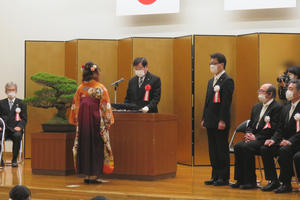
2019 marked the 70th anniversary of the founding of Gifu University in 1949. As we all know, on April 1, 2020, Gifu University will make a fresh start as the "Tokai National Higher Education and Research System, Gifu University" under a new framework that brings Gifu University and Nagoya University together under a single corporation. In this regard, the 68th Commencement Ceremony is the last conducted under the traditional name of Gifu University.
Now, let me touch on the history of Gifu University. The start of our university can be traced back to the Gifu Prefectural Normal School, established in 1873. Thus, our university has a history of 147 years and has produced many outstanding alumni who have led and continue to lead active roles in various fields in Japan and overseas, including educational institutions, private corporations, and governmental organizations. Some of our alumni have assumed such prominent posts as executive members of global business entities, leading-edge enterprises, mayors, and university presidents overseas. The faculties and graduate schools of Gifu University are highly rated in Japan and internationally due to the activities of our alumni. All of you who have earned your diplomas today will also play a part in these activities, but you will be truly evaluated, depending on the roles you play in society in the future. Therefore, I would like to emphasize the following two points: one is to hold both global and regional perspectives, and the other is to have the courage to explore all sorts of areas on your own, making progress and becoming pioneers in your own right.
Regarding global and regional perspectives, I am increasingly certain that no matter where we are or what development stage we reach, education provides the basis for the support of a country, particularly a country with scarce resources such as Japan. Of course, the focus of education in each academic field changes with time, and the weight of each field within the entire academic landscape will continue to change. Such movement applies not only to education but to a wide range of industries. Therefore, it is essential to publicize the fields in which we excel, identify positions on matters that require collaboration, and determine how to share our work. Moreover, we must not be limited to making these considerations from the viewpoint of one local area or one country, but also from an international perspective. I want all of you to consider the social contributions you can make on a global scale, without limiting yourselves to your own research themes or future plans.
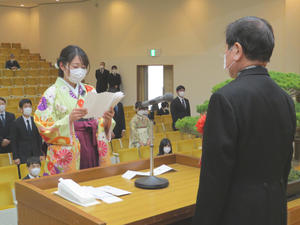
Next, I would like to mention that among the most serious problems facing Japan are the decline in the birth rate, the increase in the aging population, and the relationship of these issues with regional communities. These are problems that all developed countries will confront sooner or later, and Japan as a leader can serve as a model for their futures. There are various criteria for evaluating whether the results of the initiatives in this model are recognized as successes or failures. In other words, there are diverse points of view on how to evaluate the happiness of individuals living in a certain region. For instance, some people in Japan prefer to live alongside their families in the region where they were born and raised. To meet their needs, it is essential to provide them with job opportunities, medical services, and public welfare. Additionally, educational enrichment is a prerequisite for encouraging lifelong learning habits among residents in a region. Once again, I would like to repeat the importance of looking at various situations from both international and regional viewpoints.
As you proceed to the next stage of your long lives, do not be afraid of failure; decide what goals you wish to attain, and go forward. A great business leader in the Showa era said, "Even if you experience a failure, if you ultimately attain your goals, that will not have been a failure." Let me also quote a passage from my favorite novel. A man asked his junior who suffered a great setback, "What will you do next?" The junior replied, "I will start it all over again and again." His resolve is a real embodiment of the aforementioned comment by the great business leader. It is, however, important to observe those around you comprehensively and properly think through factors. Using research as an example, a British scientist taught me, "Thinking, thinking, thinking, and one experiment." I want you to have an intrepid fighting spirit, but also mature, well-considered ideas. The message from Professor Toshihide Masukawa, the theoretical physicist who was awarded the 2008 Nobel Prize in Physics, was especially directed toward university students. I had the honor to talk with him in 2017, and he told me, "Young people should have aspirations, dreams and hopes. Your constant, strenuous efforts to attain them will be a driving force for growth." I have conveyed this message to your seniors at the commencement ceremony every year, and let me affirm that inspirational message for those of you here today.
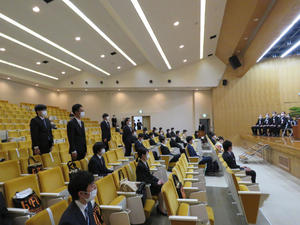
Those of you who are graduating today have studied basic and applied sciences in the various departments and graduate schools of Gifu University. Remember that the ways of thinking acquired here are not limited to the fields of your respective departments and programs. Rather, they can be applied broadly to the humanities, social sciences, and natural sciences as a whole, and further developed. With the wisdom you have gained at Gifu University, I encourage you to maintain lofty goals and a pioneering spirit as you begin to make contributions to society, the international community, and humankind at large. Whether in the near or distant future, I hope that somewhere on this planet, I am able to witness all of you enjoying a measure of success toward achieving your respective goals. Again, I extend my sincere congratulations to you.
March 25, 2020
